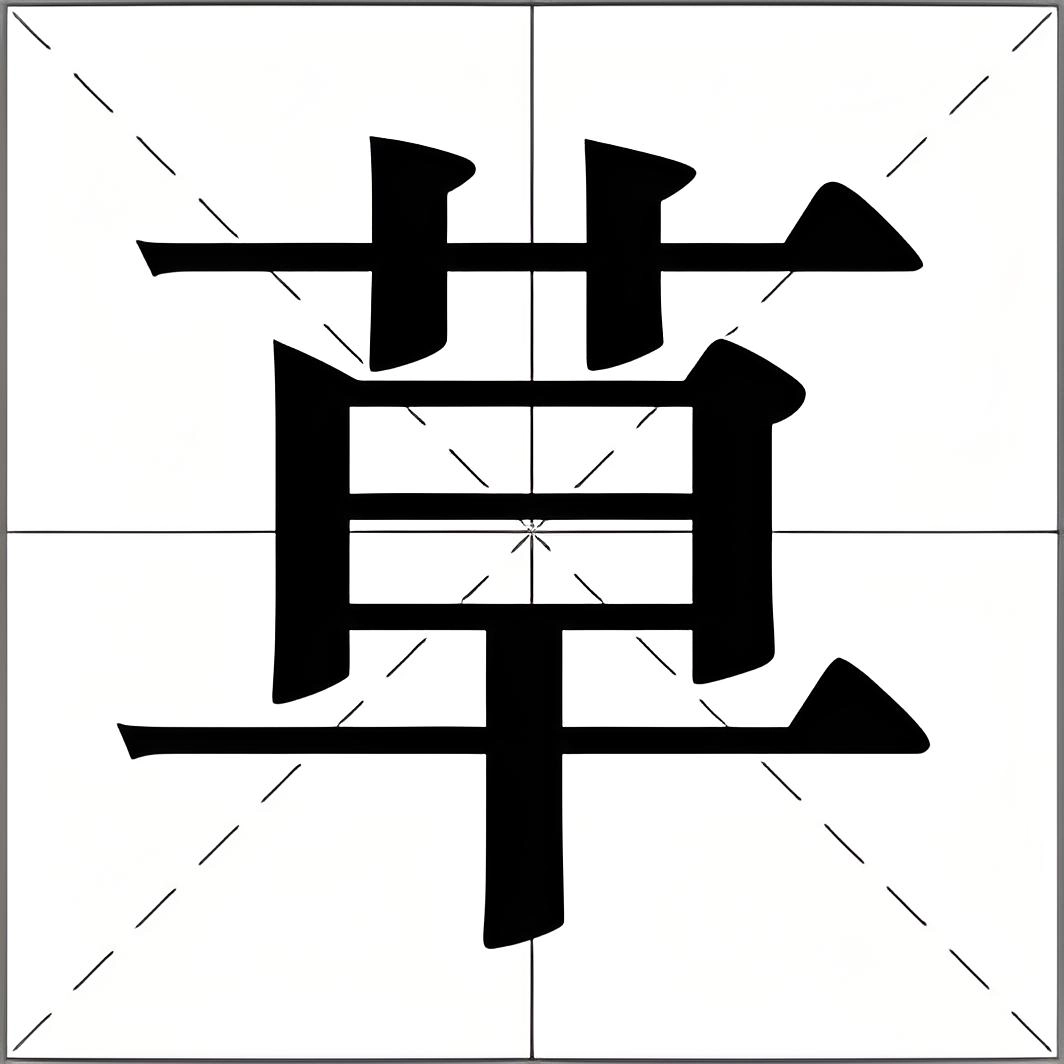The Meaning and Cultural Significance of the Chinese Character “草” (Grass/Herb)

The Chinese character “草” (cǎo, grass/herb) is a commonly used Chinese character that represents herbaceous plants growing on the ground. It conveys not only the image of grass and greenery but also symbolizes vitality, freedom, and creation in Chinese culture. Understanding this character helps learners explore Chinese language, literature, and cultural symbolism, as well as Chinese vocabulary related to nature and medicinal herbs.
Basic Meaning of “草”
The character “草” is a compound ideograph. In ancient scripts, it combines “艹”, representing plants, and “早”, indicating growth, symbolizing rapidly growing greenery. As a character for natural elements, “草” reflects nature, vitality, and life force. Learning the meaning of 草 in Chinese is important for understanding expressions related to landscapes, plants, and cultural symbolism.
Common Combinations with “草”
The character “草” is often combined with other characters to create expressions used in daily life, literature, and culture:
- 草地 (cǎo dì, grassland): Represents grass covering the ground, symbolizing nature, life, and vitality.
- 草原 (cǎo yuán, prairie): Represents vast grassy areas, symbolizing openness, freedom, and natural landscapes.
- 草药 (cǎo yào, medicinal herb): Represents plants with medicinal value, connecting 草 to Chinese herbal medicine and health practices.
- 草稿 (cǎo gǎo, draft): Represents preliminary writings or works, symbolizing beginnings, attempts, or early-stage creation.
These combinations show how “草” extends beyond literal plants to convey ideas of vitality, freedom, creation, and cultural meaning in Chinese language and literature.
Extended Meanings of “草”
Beyond its literal meaning, “草” has several extended uses:
- Plants: Herbaceous plants, grasslands, prairies (草地, 草原)
- Medicine: Used as herbal medicine (草药), reflecting health, nature, and healing
- Literary and actions: Representing drafts, haste, or simplicity (草拟, 草率)
- Literary symbolism: Representing vitality, nature, freedom, and preliminary creation in Chinese poetry and literature
Understanding these uses allows learners to appreciate how 草 symbolism appears in everyday life, Chinese literature, and cultural expressions.
Cultural and Symbolic Significance
- Nature and vitality: Grass symbolizes natural growth, abundance, and life force.
- Freedom and openness: Grasslands and prairies symbolize freedom, vastness, and natural beauty.
- Literature and art: Grass often serves as a metaphor for vitality, simplicity, or preliminary drafts.
- Medicinal culture: Herbs represent nature, health, and healing in traditional Chinese medicine and cultural practices.
Usage and Context of “草”
- Nouns: grassland, prairie, medicinal herb
- Verbs/adjectives: draft, hasty, preliminary
- Literary and cultural expressions: Depicting natural scenery, vitality, freedom, or early-stage creation
Learning the different contexts of 草 in literature, medicine, and daily life helps learners understand its versatility and role in Chinese culture, poetry, and herbal traditions.
Summary: Why “草” is More Than Just Grass
Originating as a pictograph and ideograph for herbaceous plants, “草” has evolved into a versatile Chinese character representing nature, vitality, freedom, and creation. In Chinese language and culture, it conveys not only natural phenomena but also cultural, medicinal, and literary symbolism. By understanding the meaning, usage, and symbolism of 草, learners can explore Chinese vocabulary, literary expressions, and cultural traditions related to nature, health, and early-stage creation.
Related Vocabulary
| 中文 | Pinyin | English |
|---|---|---|
| 草 | cǎo | grass / herb |
| 草地 | cǎo dì | grassland |
| 草原 | cǎo yuán | prairie |
| 草药 | cǎo yào | medicinal herb |
| 草稿 | cǎo gǎo | draft |
| 草率 | cǎo shuài | hasty / careless |
| 草拟 | cǎo nǐ | preliminary draft / tentative plan |